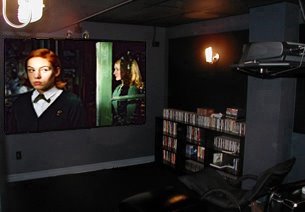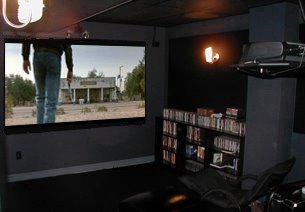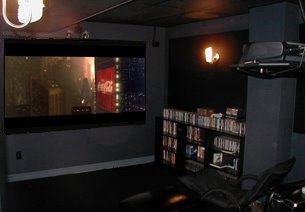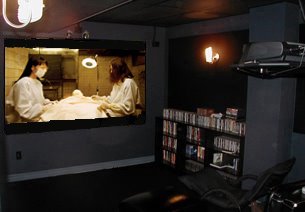KBT Presents: THE WOODS

Lucky McKee, despite his name, seems to have bad luck. He makes good films, which flirt with the mainstream, while quitely subverting it, and never seemed to get a proper release. Probably the most exposed work he has done was the (apparently substandard) 1 hour telefilm for the Masters of Horror series called "Sick Girl." The title could actually apply to both of his films, the 2002 modern riff on the creation of Frankenstein, if the good doctor was an alienated and sexually frustrated teenage girl, which got such a very limited theatrical and subsequently quiet DVD release. May has become a sort of secret handshake between discriminating horror fans in the same vein as Canadas feminist werewolf movie Ginger Snaps. His most recent film, which didn't even get a theatrical release, despite starring academy award nominated actress Patricia Clarkson and B-Film legend Bruce Campbell was unceremoniously dumped onto DVD a couple weeks ago. The Woods is very restrained horror/drama set in a remote girls 'finishing' school in the 1960s. A young girl (Agnes Bruckner is practically abandoned by her parents due to her lack of discipline at home, the latest incident being almost burning down said home. This school has a reputation of turning out smart disciplined ladies. Our heroine, appropriate named Heather (referencing the surrounding forest as much as the viscious teen dark comedy from 1989) indeed soon find out rough social order at the school imposed by some of her classmates and the tough (but strange) school mistress that her initiation is indeed going to be a trial by fire.
The pacing in the film is much more of a drama than a horror, in a similar way to Dario Argento's "Suspiria" Guillermo del Toro's "The Devil's Backbone" or Peter Weir's "Picnic at Hanging Rock." Notably all three of films push pass the conventions of horror films and are co-incidently set in remote schools. Other fleeting echos of similarity I felt while watching were to the Stephen King movies "Firestarter" and "Misery" (the Agnes Bruckner/Patricia Clarkson battle of wills resonated a bit as a James Caan/Kathy Bates for me anyway). The film is somewhere in between all of these things, (although not quite up to the standards of any of them, it gives its premise a good stylish whirl) its deliberate pace is likely to throw off genre fans (despite a couple tips of the hat to Evil Deads Ash, Campbell is quite restrained here. Put yourself in a slow-burn frame of mind to best enjoy the experience. Special mention is warrented for the superb sound design which featured creaking limbs and groan house/school structural moaning throughout the film giving an aural nod to underlying adolescent stresses on the lead character from the school and her classmates.



